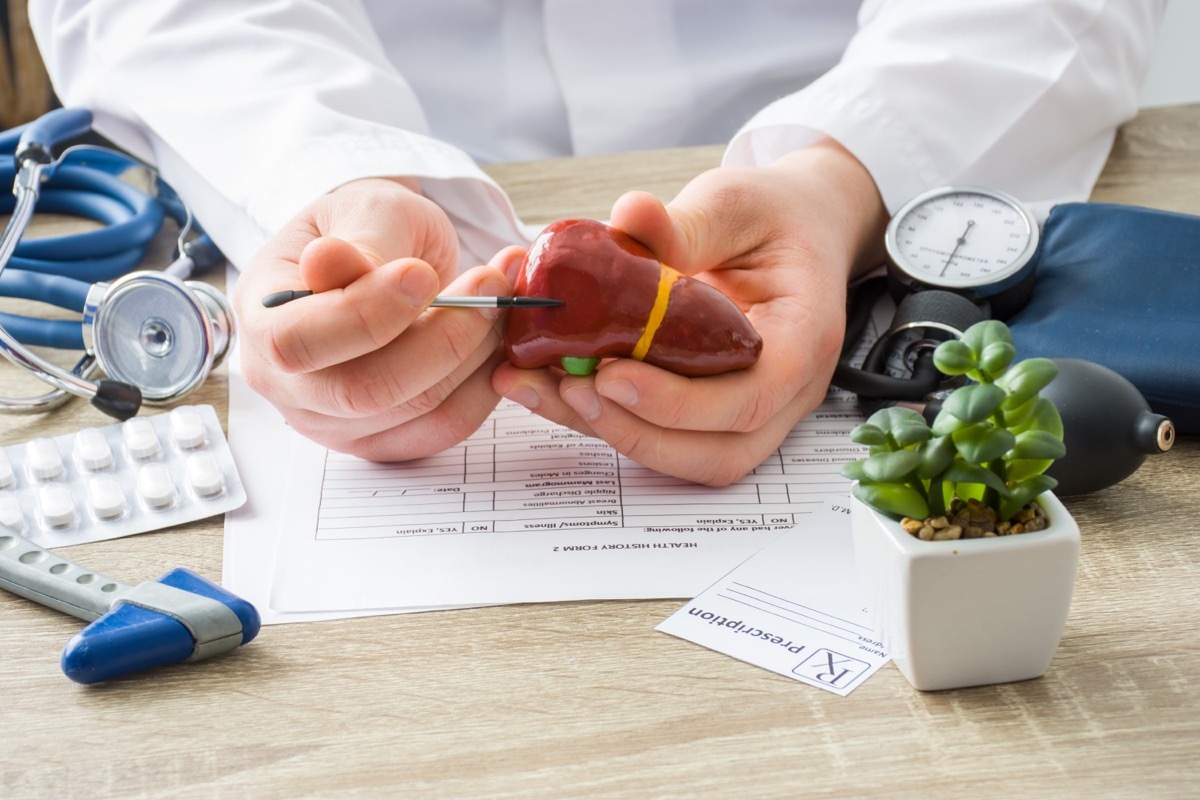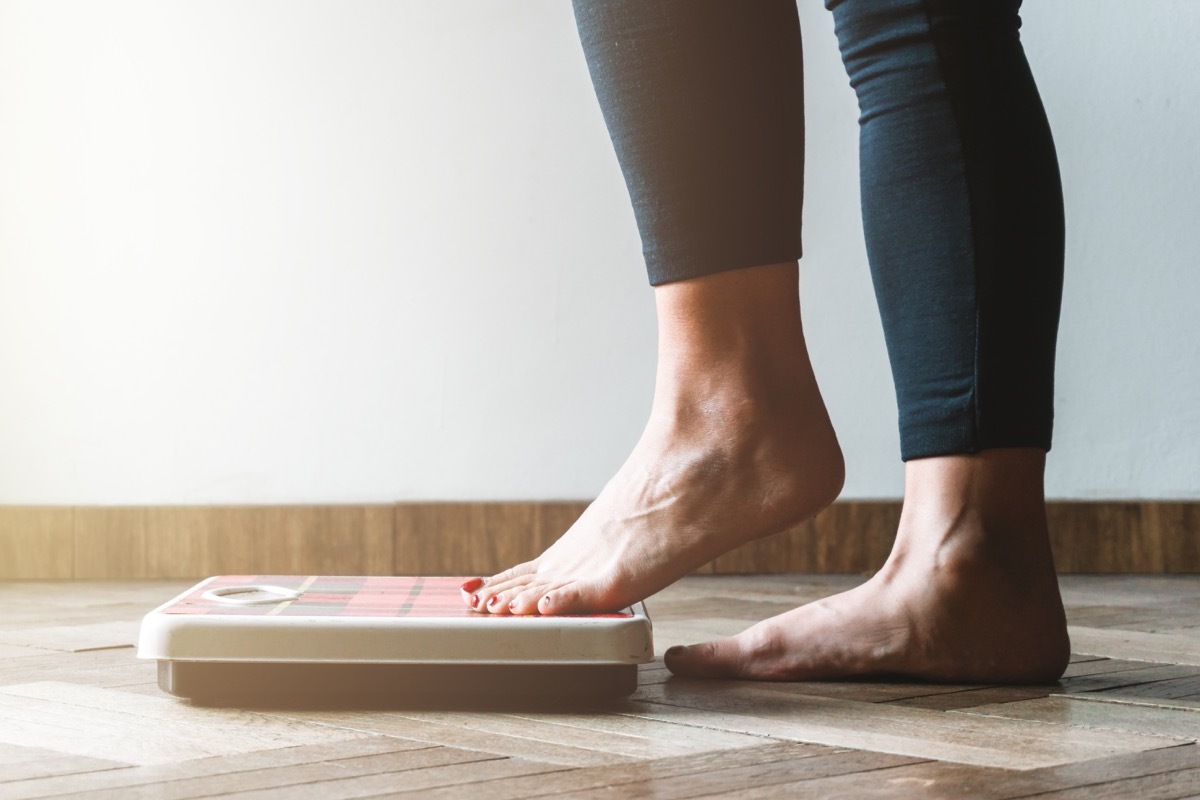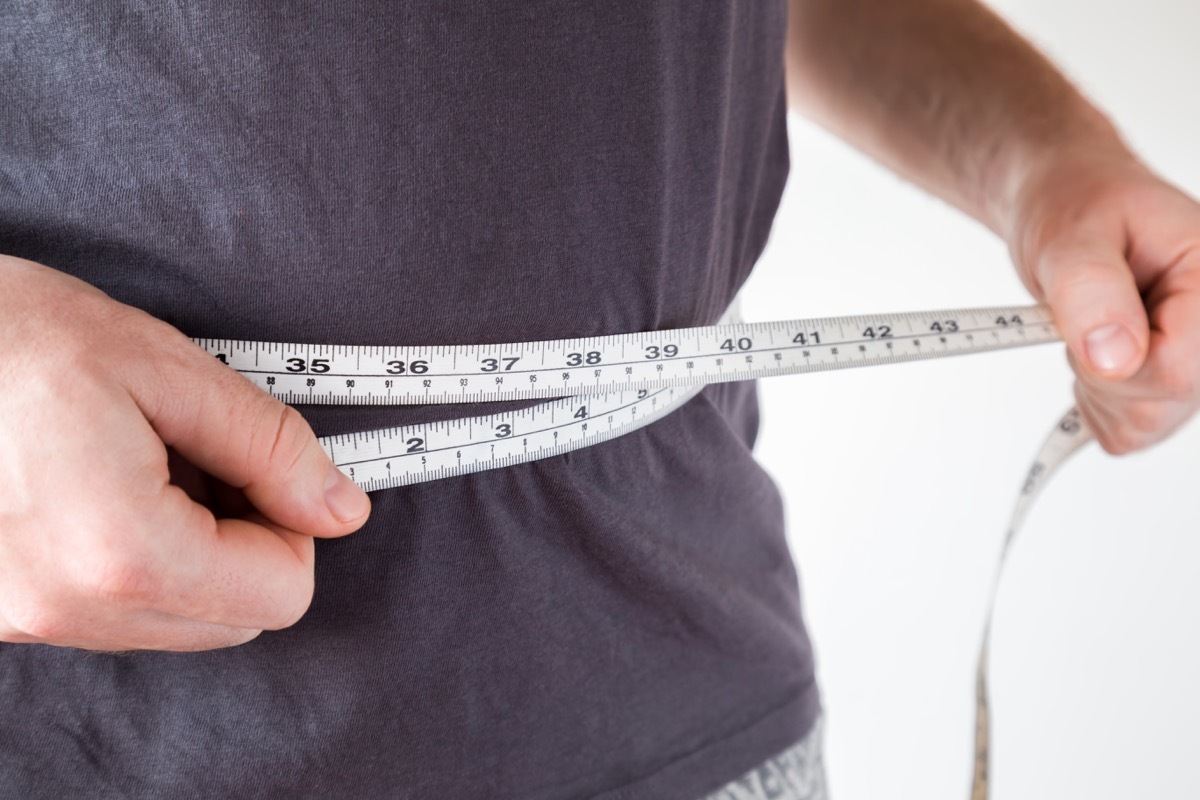If You've Lost Weight Recently, Get Your Liver Checked
Losing weight this way can be a health hazard, experts warn.

It's no secret that your weight is correlated with your risk of developing various diseases, including cancer, diabetes, heart disease, and stroke. But while losing weight is good for you in many cases, there's one way it could actually be harmful to your health. Specifically, experts are concerned about your liver, which they say could suffer if you lose weight in one particular way. Read on to learn why this type of weight loss is considered a risk factor for a liver condition that affects a startling number of Americans, and how to avoid developing serious complications as a result.
READ THIS NEXT: If You Notice This Around Your Eyes, Get Your Liver Checked.
Roughly a quarter of adults have non-alcoholic fatty liver disease.

Non-alcoholic fatty liver disease (NAFLD) is a common liver disorder which occurs when a person develops a buildup of fat in the liver, without signs of inflammation or liver damage. According to the National Institute of Diabetes and Digestive and Kidney Diseases (NIDDKD), roughly 24 percent of American adults are currently living with NAFLD.
A small percentage of people with NAFLD will go on to develop nonalcoholic steatohepatitis (NASH), which is marked by these two complications. "The inflammation and liver damage of NASH can cause fibrosis, or scarring, of the liver. NASH may lead to cirrhosis, in which the liver is scarred and permanently damaged," NIDDK experts explain. "If cirrhosis leads to liver failure, you may need a liver transplant. People with NASH have an increased chance of dying from liver-related causes."
READ THIS NEXT: If Your Breath Smells Like This, Get Your Liver Checked, Experts Say.
The condition is most common in people who are overweight.

The NIDDK points out that if you happen to be overweight or obese, your chances of developing non-alcooholic fatty liver disease and its complications are even higher. The organization writes that the condition "is present in up to 75 percent of people who are overweight and in more than 90 percent of people who have severe obesity, also called extreme obesity."
Because of this, losing weight through a healthy diet and exercise is one of the best ways to reverse the effects of NAFLD and avoid serious health complications, experts say.
Losing weight this way can increase your risk of NAFLD.

While losing weight may very well help you avoid dangerous complications of NAFLD, experts also warn that losing weight rapidly can actually increase your risk of NASH and its complications.ae0fcc31ae342fd3a1346ebb1f342fcb
For this reason, the NIDDK recommends following certain guidelines to lose weight safely and gradually, with a focus on balanced nutrition. These guidelines include "limiting your intake of fats, which are high in calories and increase your chance of developing obesity; replacing saturated fats and trans fats in your diet with unsaturated fats; eating more low-glycemic index foods—such as most fruits, vegetables, and whole grains; and avoiding foods and drinks that contain large amounts of simple sugars, especially fructose."
If you have recently lost weight over a short period of time, you can discuss with your doctor whether you should take any additional measures to protect your liver health.
For more health news sent directly to your inbox, sign up for our daily newsletter.
Take these preventative measures to avoid complications when losing weight.

Besides shedding pounds gradually, there are several other ways to protect against NAFLD, or reverse its effects. First and foremost, experts advise against drinking alcohol. While NAFLD is not itself the result of alcohol consumption, drinking "can further damage your liver," NIDDK experts write.
It's also important to manage any related health conditions that could put you at greater risk. These may include diabetes, high cholesterol, high triglycerides, underactive thyroid, underactive pituitary gland, sleep apnea, and more.
Speak with your doctor if you are unsure of whether a health condition you have could be increasing your risk of non-alcoholic fatty liver disease and its complications.
READ THIS NEXT: If You Feel This at Night, You Need to Get Your Liver Checked, Doctors Say.

Kung ano ang tila isang random na guwang puno lead sa isang pagtuklas ng mga loggers

10 "Silly Fights" na maaaring ganap na mabura ang iyong relasyon, sabi ng mga therapist
